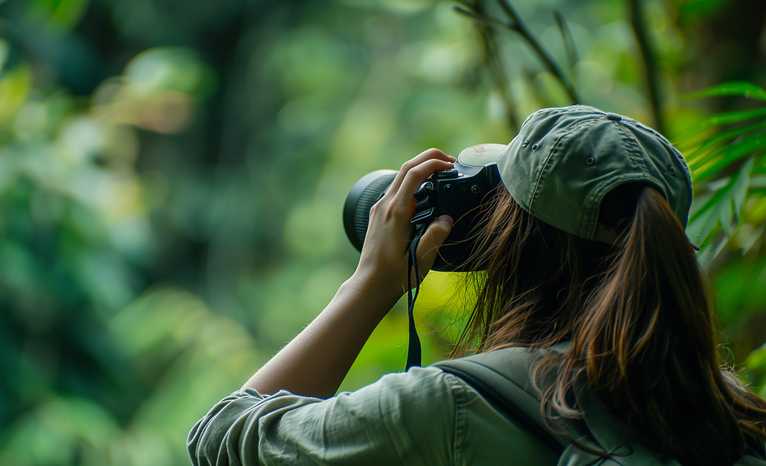Why Photography Matters for the Mental Health
In recent years, the issue of enhancing people’s awareness of mental health has been discussed and widened, thus uncovering different approaches to the ways which can boost our mental health. Of all these methods, photography has turned out to be a special one and at the same time quite an influential one. Photography can be the act of making pictures but it also deals with topics and themes such as mental health, patience, voice, perspective and motivation. Indeed, it is an attempt to understand what photography means in the greater scheme of things and how it can both alter and save your mental health.
1. Ways in which photography can help boost your Mental Health
As other people think that photography is something very trivial one can do it has the great potential to alter one’s mental condition. However Positive mental health pictures every time you raise a camera, you are actually creating something and that in itself is therapeutic.
- A Creative Outlet for Emotional Expression: It also vents out emotions pointing to the fact that photography offers an outlet for expressing such feelings. Taking a photograph enables one to show emotions that can be hard to explain in the form of a word. It shows that whether it is a series of anxiety photos or photos that convey the feeling of calm, photography is useful for externalizing and regulating emotions.
- Focus and Presence: Photography is one of the major values that helps people be present in the real world. Framing is basically setting up a photograph and it requires the full focus on the shot which in turn helps the mind to shift focus from worries and shift the focus to the present. This practice tallies well with mindfulness practices that have been demonstrated to help in the reduction of anxiety and depression.
- Boosting Self-Esteem and Confidence: When it comes to painting one’s perception of what is beautiful or even meaningful can go a long way in improving one’s esteem. This process of creation leads to achievement which is worth much for people with plenty of low self-esteem or depressive disorders.
- Promoting Positive Mental Health Through Photography: Photography makes people discover different areas and seek happiness and joy in the simplest things in life. It is a great way of practicing looking for and taking positive outlooks on mental health to retrain the brain to seek out good things rather than dwell on bad ones.
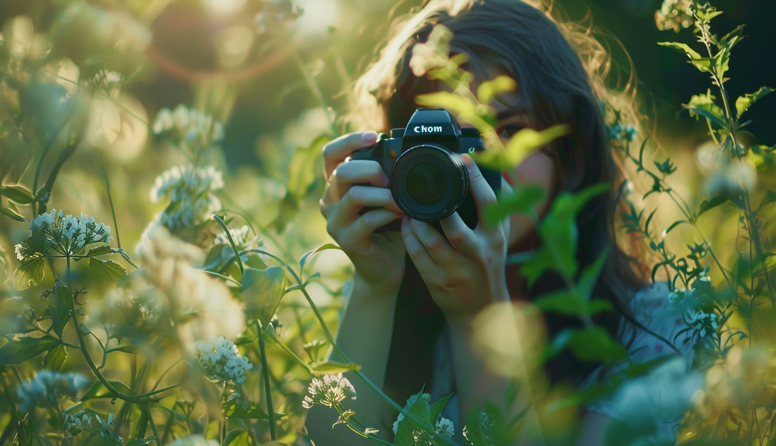
RVR Photography: Shaping Tomorrow’s Visionaries. By Simran
2. Photography Accessible Mindfulness
Mindfulness is one of the most efficient ways of enhancing the quality of the human mind, and photography is one of the ways to practice mindfulness. As you will learn, unlike some of the more structured mindfulness exercises, feel good photography can be done anywhere at any time.
- Seeing the World Through a Lens: I believe that photography requires one to take time and look at the world in a different perspective. This process of attentiveness is also useful in building up and since angst is related to stress, then building up the former implies a reduction in the latter, as well as the improvement of the subject’s emotional regulation. Through photographing, one can observe light, shadow, patterns and even details of objects around him that he might not have noticed.
- The Therapeutic Power of Creating Feel-Good Pictures: Photography calls you to take what feels ‘right.’ Whether it is a landscape that makes you feel calm, an off-cam candid with a smile/laugh, or an item that may be dear to you love happiness, trigger happiness so to speak increases and strengthens positivity.
- Developing Emotional Awareness: Self-exploration is another facet that is coated through the use of photography in one’s life especially emotions. By taking feel-good picture snaps of themselves and then looking at the images, people can be in a better position to know how they may be feeling, since this is part of what is required in emotional health and intelligence.
- Accessible to All: Another benefit of this field is its simplicity as it can be practiced by anybody at any age, level and status in society. You don’t even need a fancy camera or a professional camera, even having a smartphone can be useful in beginners learning about photography therapy.
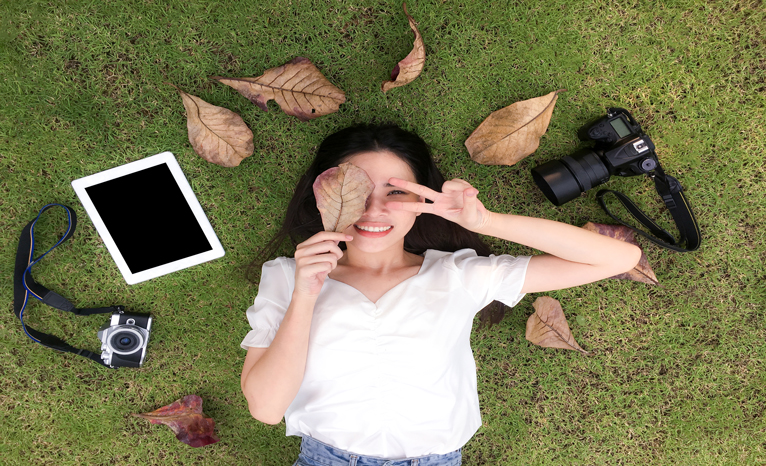
3. Self-Expression and Healing Through Photography
Photography can be simply defined as the art of capturing an image however it is much deeper than that. This makes it a very handy tool when it comes to self-expression, especially for such people who might have a very hard time expressing their selves through other normal means.
- A Visual Diary for the Soul: It may also be a way of chronicling one’s existence- taking photos can help someone to remember the stages of life that anyone goes through. This process can be very helpful since it helps a person share with someone else what they have gone through and be able to look at it from another angle. Developing a series of mental illness pictures for instance can be most useful in explaining one’s or another’s experiences with mental disorders.
- Breaking Down Internal Barriers: Through photography one can perform aspects that he or she would otherwise not do. It may be highly beneficial in conditions where the person has various mental disorders. it is a productive and non-violent means to express oneself.
- Empowering Through Creation: The creation process is by itself liberating. Photography can be seen as empowering mainly because it helps people to control the story, they wish to tell dispensing with how they want to be seen. This feeling of being in control is important for those who experience personal powerlessness in other spheres of life.
- Transforming Negative Emotions: Photography can be used as a form of dealing with negative emotions where a person takes pictures of places or things that make them feel relaxed or happy. Through such kind of picture capturing feel-good pictures, one can be able to uplift the entire mood of a given individual.
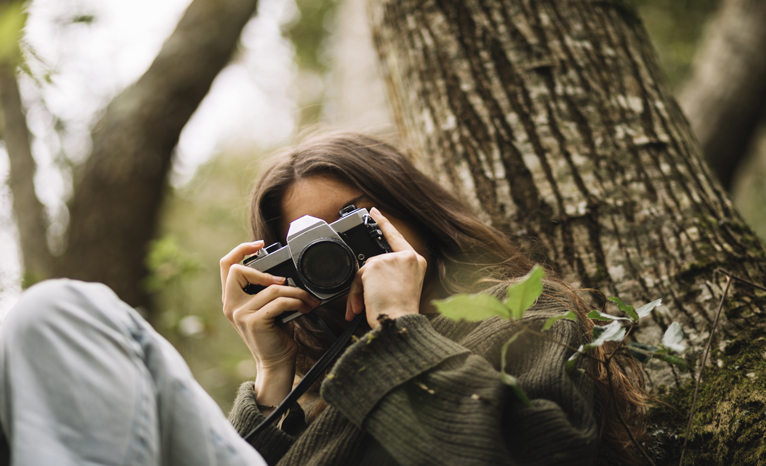
4. Understanding Mental Illness Through Photography
Photography is a great tool with which mental illness can be explained to the anarchists and the individuals suffering from it as well.
- Visual Storytelling: Photography enables a way of capturing experiences, which are either unobservable or whose nature people fail to understand. Through images that reflect the mental condition of a person photographers can convey detailed information about mental illnesses such as depression or anxiety to the public.
- Empathy and Awareness: Mental illness pictures may generate the viewer’s compassion and worthwhile approach. Photographers as sensitive communicators have the unique ability to put a face to the reality of mental health issues in a society. This can lead to more understanding and less criticism in people, hence working towards making the world a better place.
- Challenging Perceptions: It is because photography can overcome some prejudices in society about mental diseases. If photographers turn their attention to depicting people with mental disorders the latter can experience new cognitions, unlike those who believe in popular clichés about such individuals.
- A Platform for Advocacy: There are so many issues that photographers can address through their work and making mental health one of such issues is not a terrible idea at all. By describing moments that reflect their or other people’s state photographers can sensitize society to the issues of mental health and ignite the processes of changing the existing conditions.
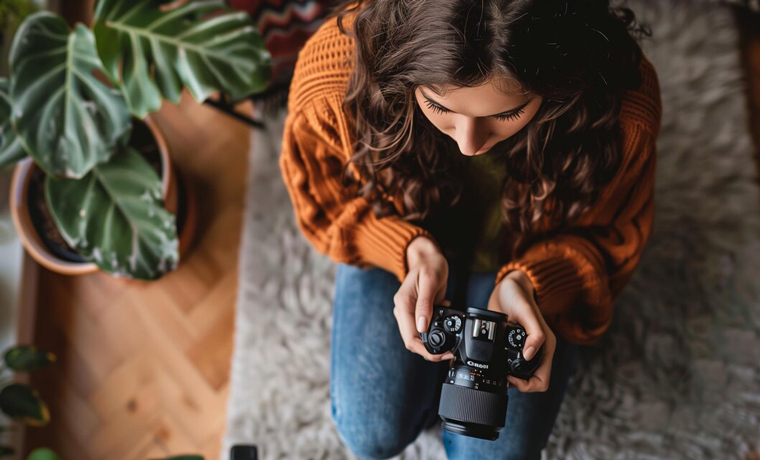
5. Challenging stigmas and Breaking Barriers
They rejected the idea of photography as just a catharsis for the individual into the discourse of society’s change. Photography can of note be used to break barriers and remove stigma especially when it comes to the mental health of people.
- Humanizing Mental Health Issues: Among the challenges that affect the level of mental health awareness, culture plays a very important role specifically, the stigma. One of the reasons behind the use of photographs is the capability to bring the human touch to mental health problems by putting a face to it. That ordinary people with such disorders go through their routines and make it to the pictures may help counter prejudice.
- Creating Dialogue: It is in this light that images that portray real-life issues dealing with mental health can be highly beneficial in initiating discussions. They can provoke a conversation on mental health, which probably would not have occurred in the first place, thus, increasing awareness of this disease and decreasing its stigmatization.
- A Tool for Social Change: This is an advocacy of Mental health policy changes and support systems through photography. The role of photographers in conveying the truth about mental health conditions is to share those facts via effective visual appeal and make as many people as possible pay attention to emotional disorders, the need for investors and understanding of mental health problems.
- Building a Supportive Community: Photography can also develop communities for support Self-portraits can be used for documenting one’s life. It means that with such images people with similar experiences are found and there is a feeling that someone understands you. Such a communal aspect can be very helpful to people who can be very much alone because of their mental issues.
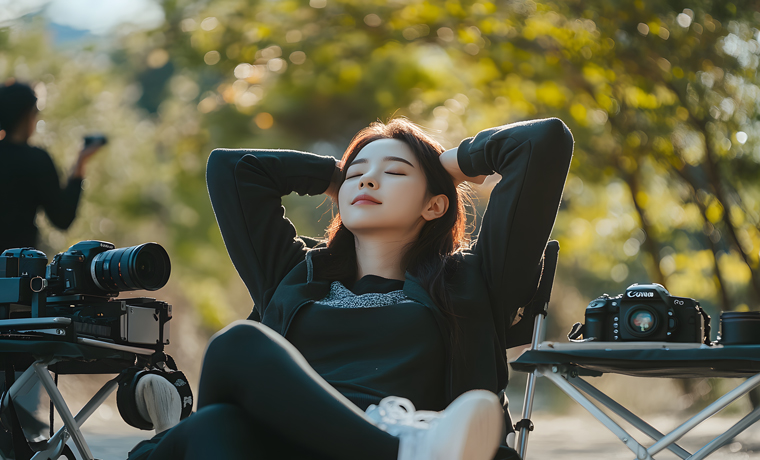
Conclusion:
Photography is not just about the pretty photos it gives but the path to one’s mental health and wellness. For the discussion of mindfulness and oneself, for the development of empathy for others and the advocacy against stigmas, photography can have a powerful impact on mental health. Photography, whether at the professional or amateur level can transform the person practicing it as well as transforming society.
If you are or know someone who wants to find out about the therapeutic and transformative potential of photography, it is high time to apply at the RVR School of Photography. When you are at RVR you will not only learn how to capture a beautiful image but how photography can be a form of therapy. Since most of the courses offered at RVR School of Photography are focused on creativity and awareness, this is the ideal among the health and wellness photography schools that can kick start your change towards a healthier lifestyle through utilizing this type of art. What does photography teach us? Join us and feel changes in your life.
Clarify Your Doubts (FAQ's)
We reimburse all expenses of the Client for the payment of fines and penalties that were caused by mistakes made by us in accounting and tax accounting and reporting.
We reimburse all expenses of the Client for the payment of fines and penalties that were caused by mistakes made by us in accounting and tax accounting and reporting.
We reimburse all expenses of the Client for the payment of fines and penalties that were caused by mistakes made by us in accounting and tax accounting and reporting.
We reimburse all expenses of the Client for the payment of fines and penalties that were caused by mistakes made by us in accounting and tax accounting and reporting.
We reimburse all expenses of the Client for the payment of fines and penalties that were caused by mistakes made by us in accounting and tax accounting and reporting.
We reimburse all expenses of the Client for the payment of fines and penalties that were caused by mistakes made by us in accounting and tax accounting and reporting.
We reimburse all expenses of the Client for the payment of fines and penalties that were caused by mistakes made by us in accounting and tax accounting and reporting.
We reimburse all expenses of the Client for the payment of fines and penalties that were caused by mistakes made by us in accounting and tax accounting and reporting.

